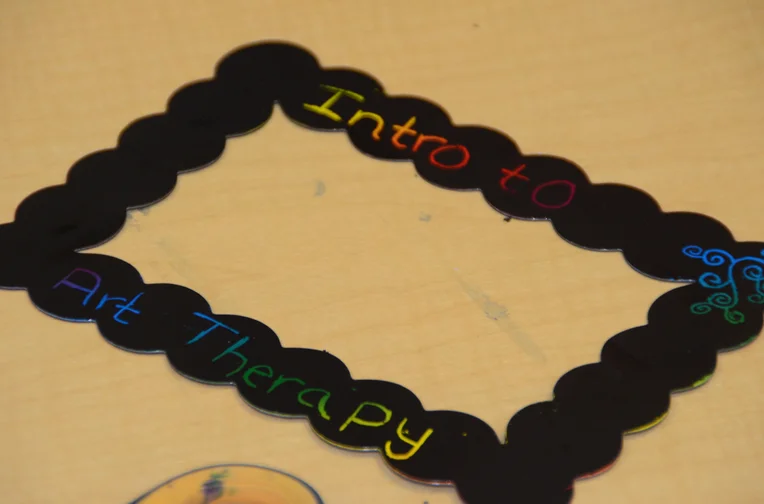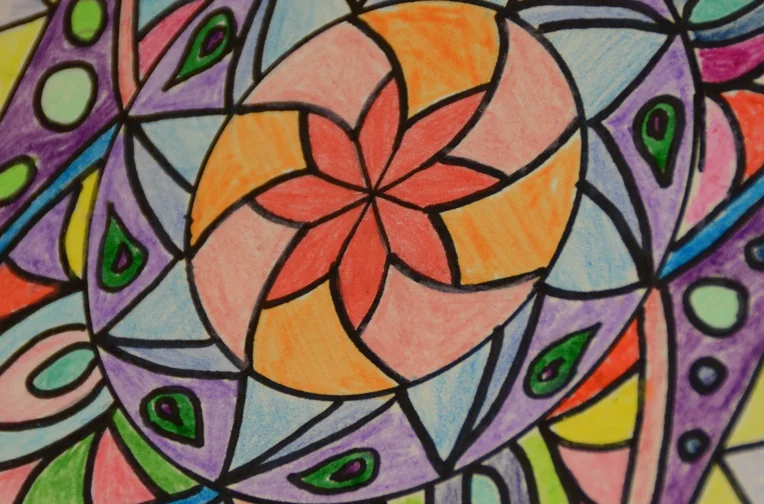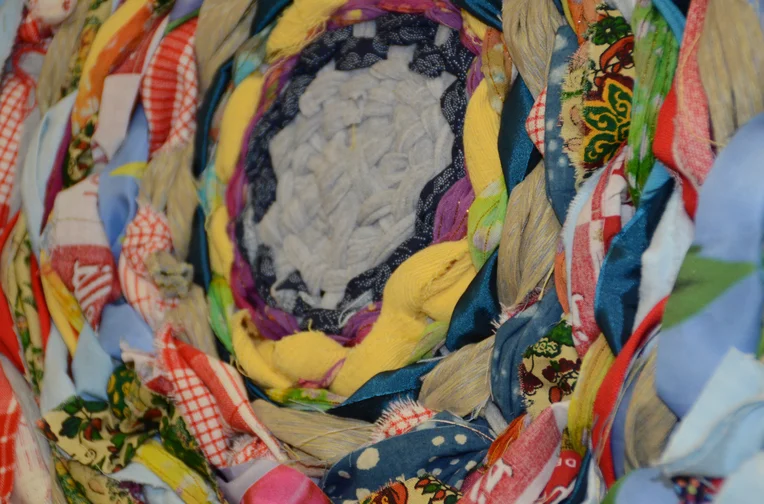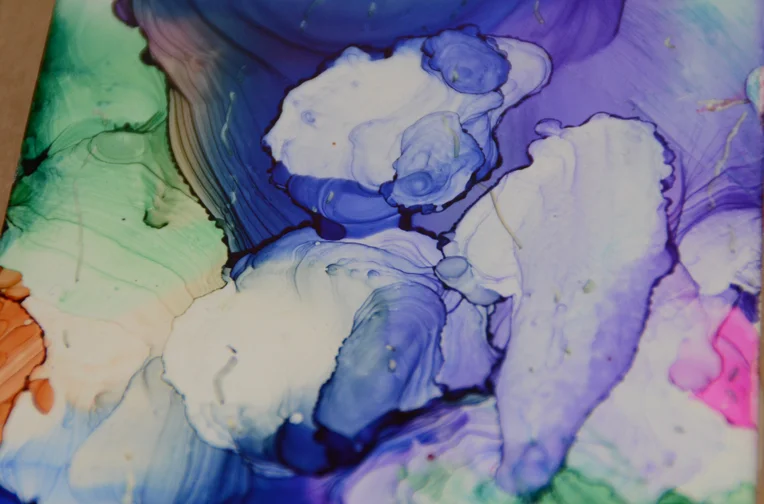Art Therapy Overview
Earn your degree in art therapy
Using the creative process to heal
Established in 1973, the art therapy master's at Emporia State University is one of only a handful of graduate programs in public universities in the United States, ensuring a cost-effective education. By maintaining a low student-to-faculty ratio, the art therapy program provides quality individual attention and helps to meet the needs of our richly diverse graduate cohorts.
Our faculty combines strengths in clinical experience with diverse populations; highly regarded book, article, and chapter publications; research skills; innumerable professional presentations; fine arts training and practice; and state, national, and international professional service and networking to offer students an exemplary art therapy education.
The Master of Science in Art Therapy Counseling prepares human service professionals to utilize the creative art process and patient/client responses as reflections of an individual’s development, abilities, personality, interests, concerns, and conflicts. Our students are prepared to work clinically as well as in community settings. We have curricula options for master's and post-master’s students. Graduates are immediately eligible to apply for the provisional registered art therapist (ATR-P) credential.
Frequently Asked Questions
- Why Art Therapy?
Art therapy offers several advantages that verbal therapy cannot. Through the creation of art, one can express thoughts, feelings, and conflicts that cannot be easily expressed through words. Those who cannot communicate effectively through other means can benefit greatly from the process. Art is a direct path to the real issues an individual is struggling with; it bypasses defenses that we use to protect or distance ourselves. The process of making art is therapeutic in itself, as the client gives symbolic shape and form to inner feelings.
- What is Art Therapy?
Art Therapy is a human service profession utilizing art media, images, the creative art process and patient/client responses to the created productions as reflections of an individual’s development, abilities, personality, interests, concerns, and conflicts. Art Therapy practice is based on knowledge of human developmental and psychological theories which are implemented in the full spectrum of models of assessment and treatment including educational, psychodynamic, cognitive, transpersonal, and other therapeutic means of reconciling emotional conflicts, fostering self-awareness, developing social skills, managing behavior, solving problems, reducing anxiety, aiding reality orientation and increasing self-esteem. Art Therapy is an effective treatment for individuals who have developmental, medical, educational, social, or psychological impairments; and is practiced in mental health, rehabilitation, medical, educational, and forensic institutions. Populations of all ages, races, and ethnic backgrounds are served by art therapists in individual, couples, family, and group therapy formats.
- Where is Art Therapy practiced?
Art therapists work in private practice or as part of a treatment team. They work in both regular and special education schools, medical and psychiatric hospitals, correctional facilities, counseling centers, prisons, substance abuse rehabilitation programs, pain clinics, halfway houses, community centers, industrial / organizational settings, nursing homes, shelters, outpatient and inpatient treatment programs, and many other settings.
- Who practices Art Therapy?
Entry into the profession is at the master’s level. The Art Therapy Credentials Board (ATCB) oversees the professional credentialing practice of art therapists.
- Is there an undergraduate degree or minor in Art Therapy at Emporia State University?
While no undergraduate degree or minor in art therapy is available at Emporia State University, students interested in pursuing the MS in Art Therapy should complete the BS in Art and the courses listed with the art department.
Mission + Licensure / Certification
The mission of the ESU Graduate Art Therapy Program is to prepare exceptional graduates who think purposefully, creatively, and ethically about the psychological constructs involved in the art making and reflection processes.
Art Therapy is a human service profession that utilizes art media, images, the creative art process and patient/client responses to the created productions as reflections of an individual’s development, abilities, personality, interests, concerns, and conflicts. Our two-year degree program results in a Master of Science in Art Therapy Counseling.
The Emporia State University Art Therapy Program is accredited by the Commission on Accreditation of Allied Health Education Programs upon the recommendation of The Accreditation Council for Art Therapy Education.
By maintaining a low student-to-faculty ratio, the Art Therapy program provides quality individual attention and helps to meet the needs of the increasingly diverse student body. Our faculty combines strengths in clinical experience with diverse populations, research skills, fine arts training, state and national professional service, and international networking to offer students an exemplary art therapy education.
The Department of Counselor Education also offers unique options culminating in candidates earning two graduate degrees.
Graduate Positive Placement Rates
2021 Graduates: 100%*
2022 Graduates: 100%*
2023 Graduates: 100%*
2024 Graduates: 100%*
Student Retention Rates
2023 Student Retention Rate: 100%
2024 Student Retention Rate: 91.7%
2025 Student Retention Rate: 91.7%
Positive Placement refers to graduates employed full or part-time in the field of art therapy or in a related field, continuing in their education, or serving in the military. A related field is one in which the graduate uses the cognitive, psychomotor, and affective competencies acquired in the program.*The Knowledge Rate for determining Positive Placement of cohorts for 2021 and 2022 was calculated using survey responses only (i.e. 75% for 2023 and 55% for 2022). For 2024, the Knowledge Rate for determining Positive Placement included survey responses (42% for 2024) as well as formal and informal faculty communication with the alumni.

Requirements
From how to get admitted to the program all the way through what it takes to graduate with your degree, the information you need is here.

Art Therapy Outcomes
More than 85% of ESU's art therapy students are employed immediately upon graduation. Find out where our art therapy program alumni work.
Our Art Therapy Program offers two stand-alone master's degrees. We are also pleased to offer two options for dual curricula which culminate in two master's degrees; students can earn two master's degrees with 30 shared credit hours through dual curricula:
- The Master of Science in Art Therapy Counseling and the Master of Science in Clinical Counseling, or
- The Master of Science in Art Therapy and the Master of Science in Clinical Psychology
Art Therapy
Master of Science
Art Therapy, Post-Master's
Master of Science
Art Therapy and Clinical Counseling, Dual Curriculum
Master of Science
Art Therapy and Clinical Psychology, Dual Curriculum
Master of Science
Take Action
how to contact us
Phone fas fa-phone-alt 620-341-5220
fas fa-envelope-open Email Counselor Education at counseloreducation@emporia.edu.
mailing address
Art Therapy Program
Emporia State University
1 Kellogg Circle
Campus Box 4036
Emporia, KS 66801
physical address
Art Therapy Program
Counselor Education
(on the ESU main campus)
1701 Morse Road
Visser Hall, 3rd Floor


